Practicing addition Worksheets for 7-Year-Olds
6 filtered results
-
From - To
Introduce your 7-year-old to the exciting world of math with our practicing addition worksheets designed specifically for their age group. These engaging worksheets from Kids Academy are tailored to build a solid foundation in addition while making learning fun and interactive. Each worksheet is thoughtfully crafted to improve your child’s problem-solving skills and boost their confidence in mathematics. With colorful designs and manageable exercises, children will enjoy mastering basic addition concepts at their own pace. Give your child a head start in math with these invaluable resources perfect for both classroom and homeschooling environments.✅Download today to begin the adventure in learning!
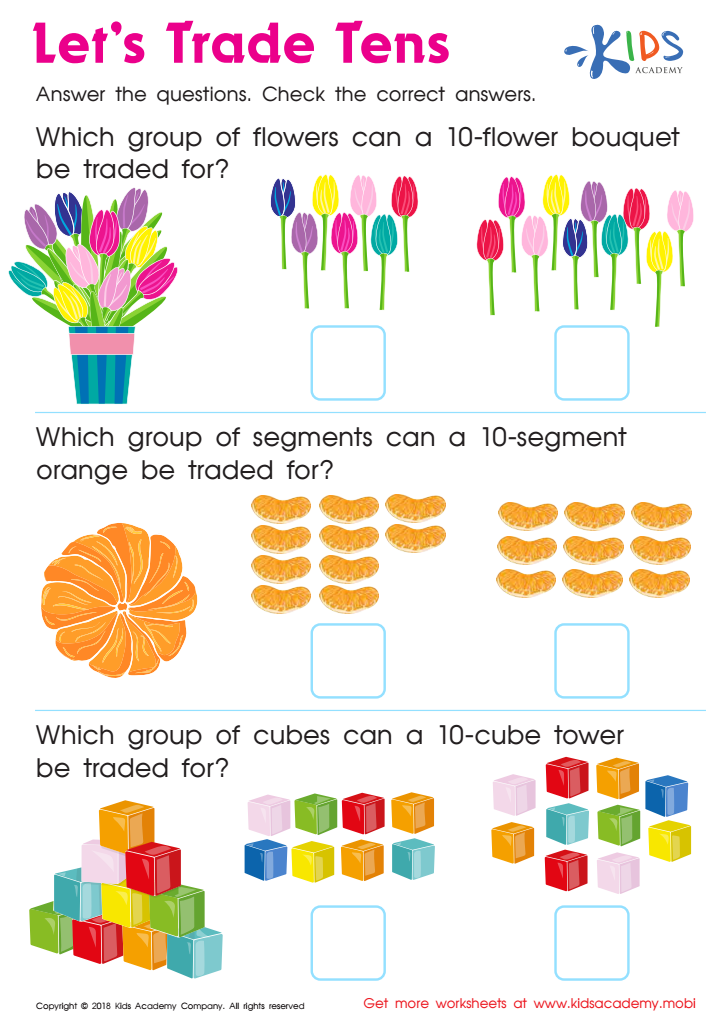

Lets Trade Tens Worksheet
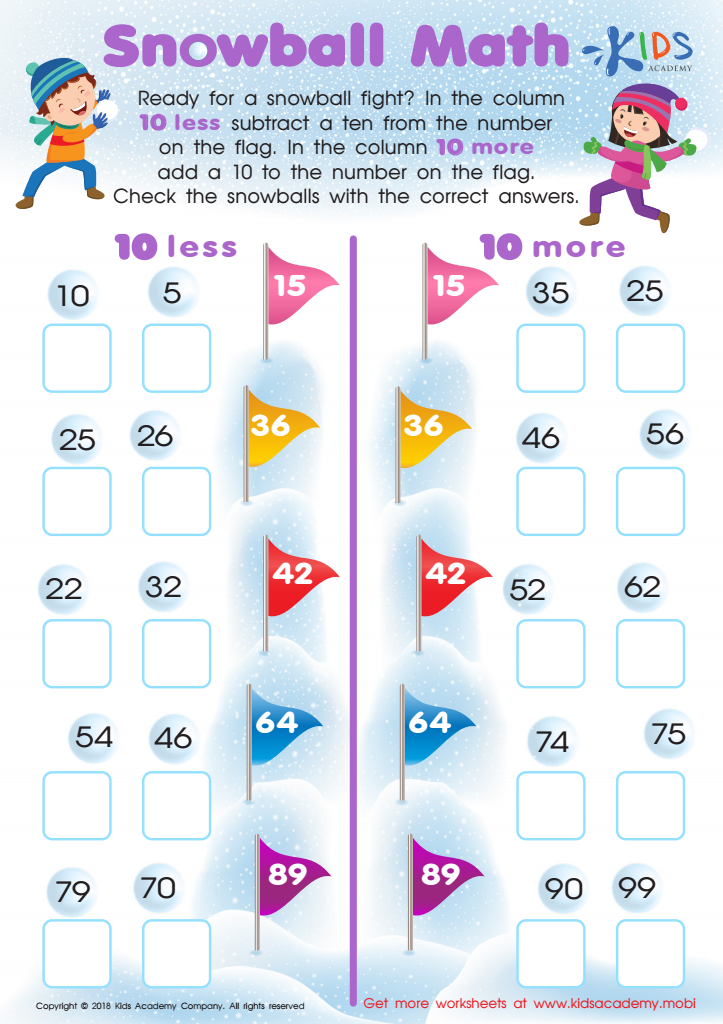

Snowball Math Worksheet
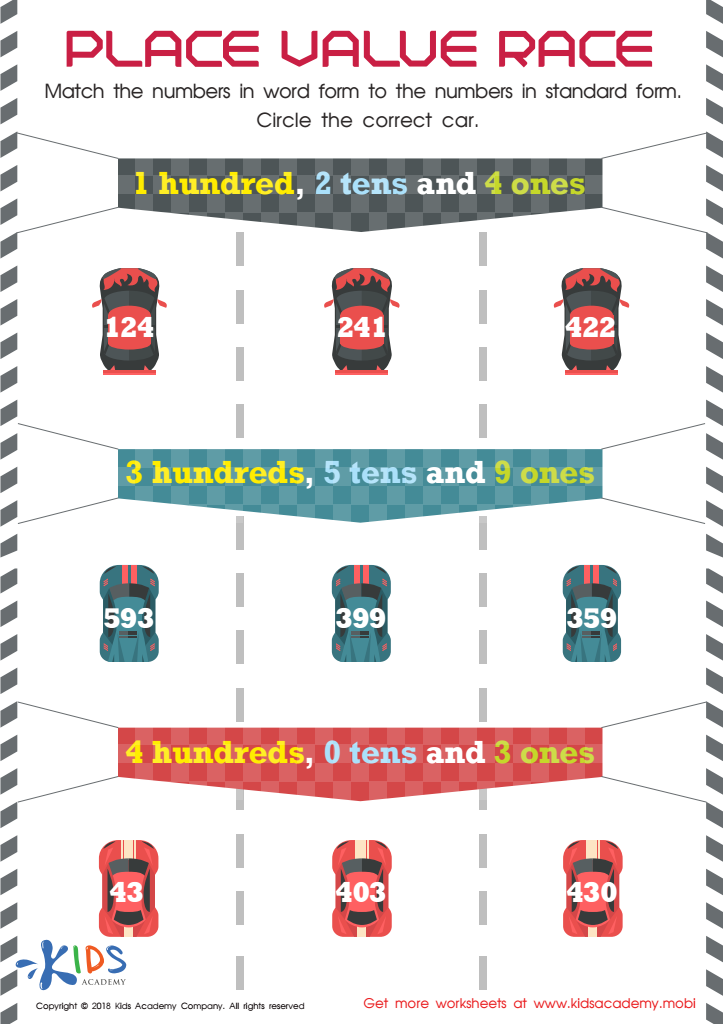

Place Value Race Worksheet
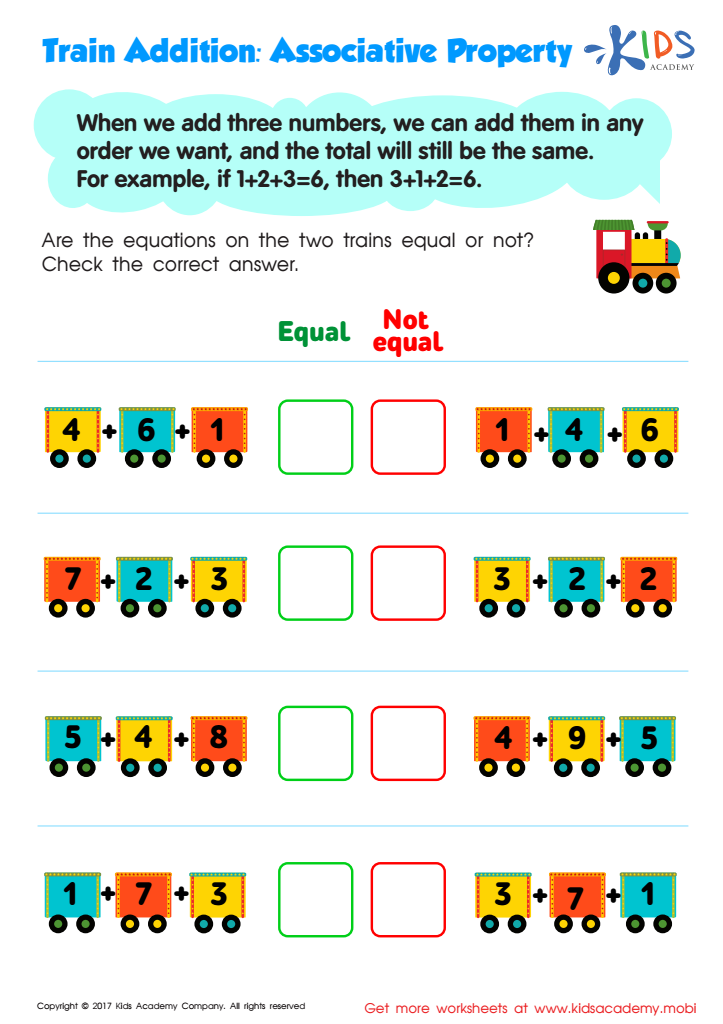

Train Addition: Associative Property Worksheet
Practicing addition at the age of 7 is crucial for several reasons, and both parents and teachers should prioritize it to ensure a child's academic and cognitive development. First, addition is a foundational mathematical skill that underpins more complex arithmetic operations such as subtraction, multiplication, and division. Mastery of addition early on paves the way for smoother progression in math as children move through school. Second, practicing addition enhances problem-solving capabilities and logical thinking. At this age, children are developing their cognitive abilities rapidly, and working with numbers helps to stimulate their brains, improving both their analytical and critical thinking skills.
Moreover, frequent practice instills confidence and reduces math anxiety. As children see their skills grow with practice, they develop a positive attitude toward learning math, which is essential for long-term academic success. Additionally, arithmetic also finds everyday practical applications, like counting money or measuring ingredients, giving children tools to understand and navigate their environment better.
Involving parents and teachers ensures that children get consistent practice and support, both at home and at school. Structured and fun activities like games, worksheets, or interactive apps can make learning addition enjoyable, encouraging children to engage more fully and build a strong mathematical foundation at an early age.

 Assign to the classroom
Assign to the classroom

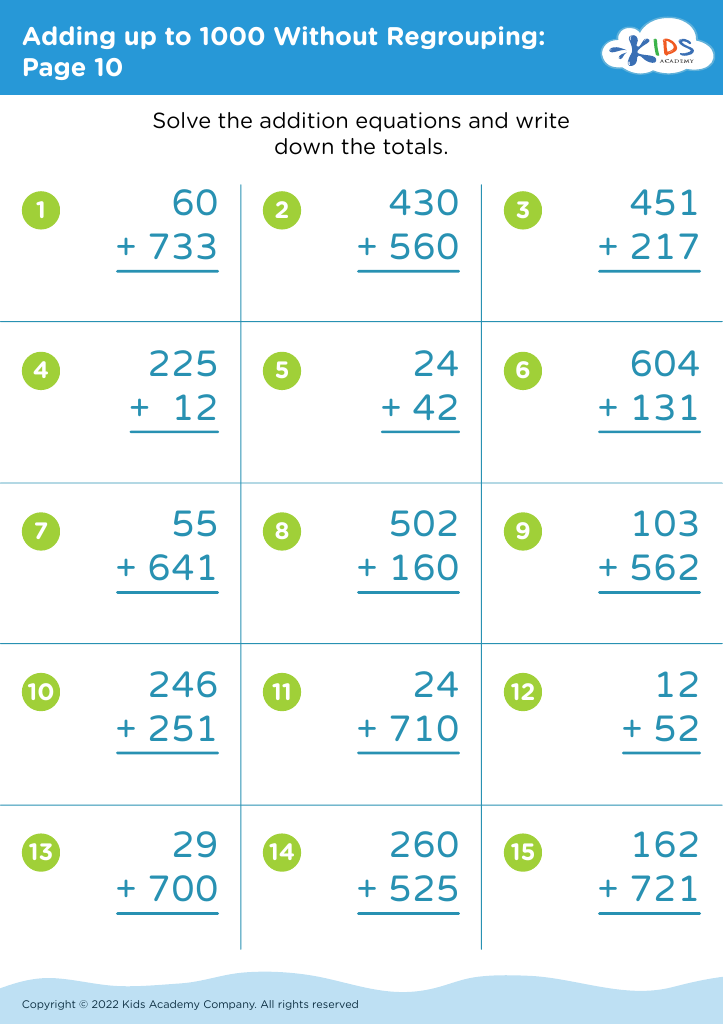



.jpg)








